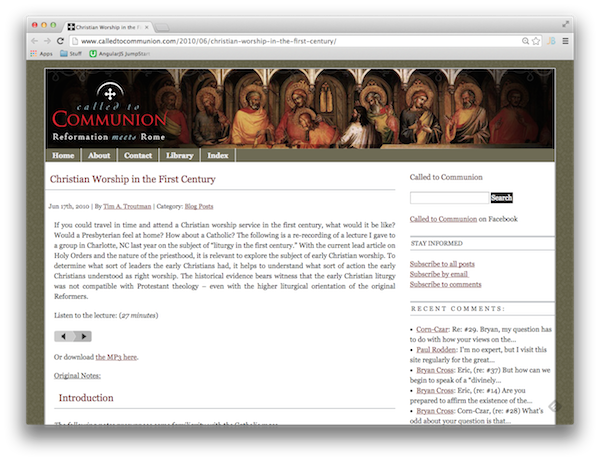Quick Apology: “No such thing thing as mortal sin”

I haven’t done one of these in a while…
In case you haven’t seen my Quick Apology articles before, these are extremely short posts in which describe how I might respond in thirty seconds or less to objections I often encounter. These might be objections to my pro-life view, or the fact that I believe in God, that I’m a Christian or specifically to my being Catholic.

Objection
Today’s objection came from a friend:
“Catholics believe in mortal sin, but the Bible never talks about it. It never makes a distinction – sin is sin”
How might one respond to this objection?
Response
I’ve spoken before about the objection that something is “not in the Bible”, but the above statement is one which can actually very easily be answered from Scripture alone.
When this particular issue comes up, I ask whether or not that person has read chapter five of John’s first epistle:
If any one sees his brother committing what is not a mortal sin, he will ask, and God will give him life for those whose sin is not mortal. There is sin which is mortal; I do not say that one is to pray for that.
– 1 John 5:16 (Revised Standard Version: Catholic Edition)
So there we go, John seems pretty clear that there is such a thing as mortal sin.
Lost in translation?
However, is this just a translation issue? After all, in the above Scripture quotation, I’ve quoted from a Catholic translation.
Well, the standard Protestant translation is the King James Version, so let’s see how that translation renders the passage:
If any man see his brother sin a sin which is not unto death, he shall ask, and he shall give him life for them that sin not unto death. There is a sin unto death: I do not say that he shall pray for it.
– 1 John 5:16 (King James Version)
As we can see, the KJV renders “mortal sin” as “sin which is…unto death”. Even with this translation the same central meaning remains:
1. There are two kinds of sin
2. One kind of sin leads to “death”
3. Another kind of sin does not lead to “death”
However one chooses to interpret this passage, it’s very clear that Scripture is making a distinction between different kinds of sin and saying that one is more serious than the other.
Not only John
As a quick follow up, I typically point out that John is not the only person in Scripture to distinguish between different kinds of sin. Although it’s a little different, Jesus Himself speaks to this subject:
Therefore I tell you, every sin and blasphemy will be forgiven men, but the blasphemy against the Spirit will not be forgiven – Matthew 12:31
Again, regardless of how one chooses to interpret this passage, it’s clear that not all sins are the same.
All sin is serious!
After pointing out these two passages, I would typically conclude the brief exchange by saying that, despite these distinctions, in a certain sense it is correct to say that “sin is sin”. It is true that all sin is an offense against God.
The Catholic distinction between different kinds of sin doesn’t mean that venial sin is “okay”. No, all sin is serious. We shouldn’t just try and avoid mortal sin, but all sin and strive for the holiness for which we were made!
 A Restless Pilgrim favourite, Trent Horn, recently engaged in an abortion debate on Atheist Analysis:
A Restless Pilgrim favourite, Trent Horn, recently engaged in an abortion debate on Atheist Analysis:
 In previous
In previous 


